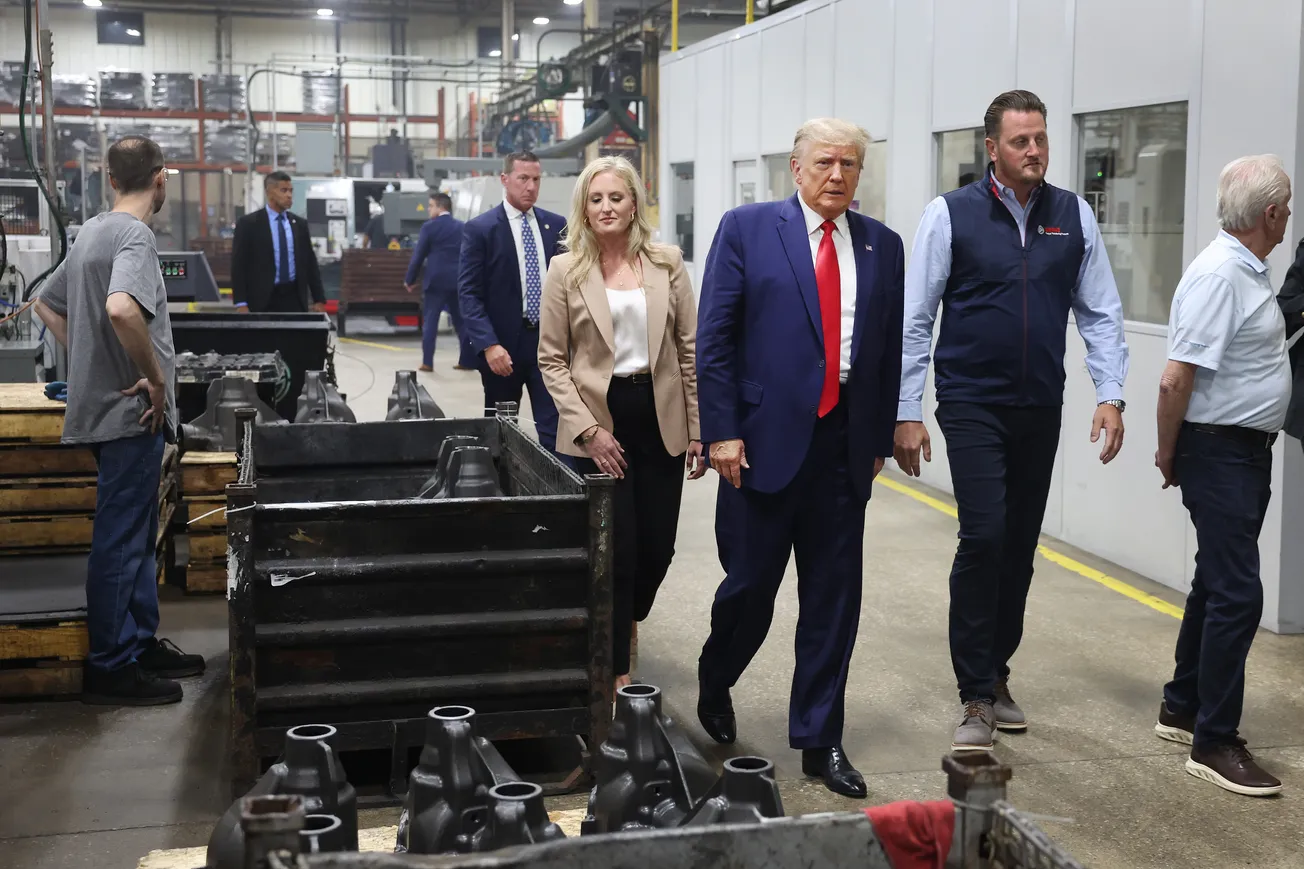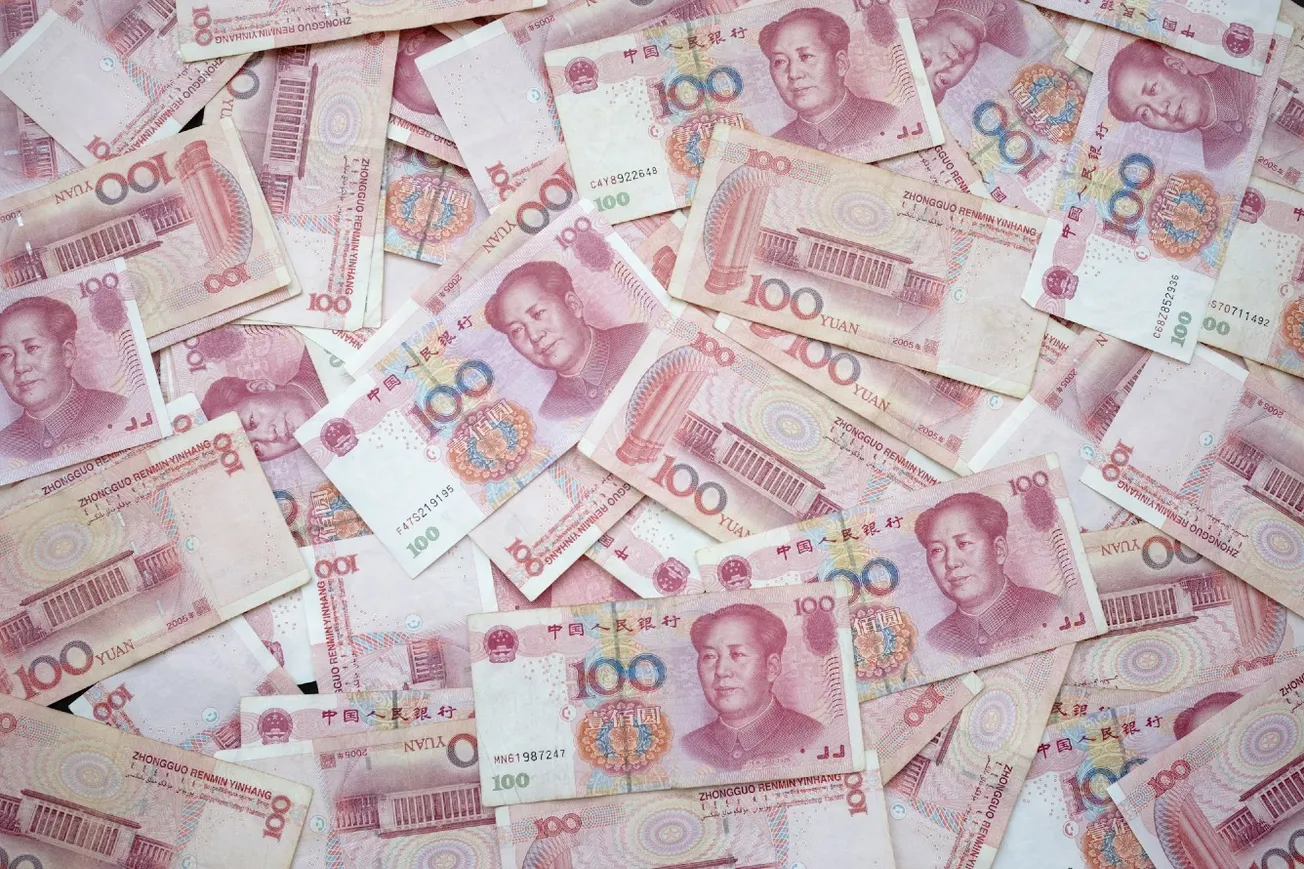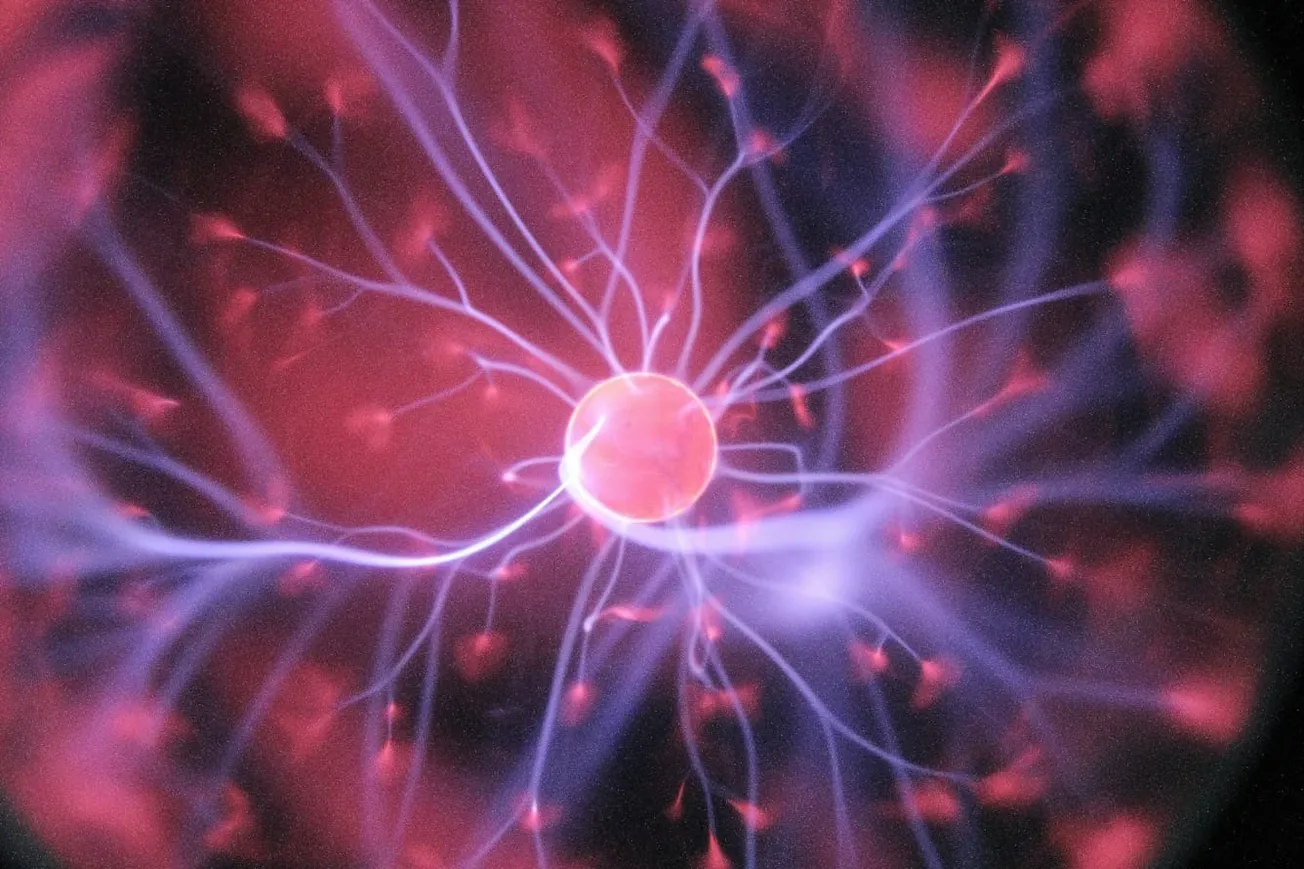Most Americans know little about how global trade impacts their families. They knew even less thirty years ago. It was left to a fearless business leader who wanted to pursue presidential politics to educate America. No, we are not talking about President Trump.
That person, a pioneer in bringing the topic of trade to kitchen tables across America, was Ross Perot, about whom most Americans born during the Reagan era know little. Perot, a short man with a distinct Texas drawl, was a quintessential American business success story. He made billions when he founded a technology services company called Electronic Data Systems (EDS) in 1962 with just $1,000 and sold it to General Motors for $2.5 billion in 1984. The 1980s were the period when America's mega-industrial corporations ventured into diversified industries unrelated to their core competence. This was the same kind of thinking that made General Electric buy NBC.
After the statute of limitations expired on his GM deal, Perot began another company in 1988, almost identical to EDS. He called it Perot Systems, which grew quickly, providing IT services to healthcare and government clients. Dell acquired the company in 2009 for $3.9 billion.
Perot died in 2019, but throughout his life, he was celebrated as one of the wealthiest businesspeople in the country. He was known for his patriotism, exemplified by funding the rescue of two EDS employees held in Iran. However, Perot's most significant contribution to America came during the 1992 presidential campaign.
Sharing the presidential debate stage with two political veterans in Richmond - President George H.W. Bush 41, running for reelection after polling above 90% following America's victory in the first Gulf War, and the Democratic candidate, Arkansas Governor Bill Clinton, a young, charismatic, and telegenic politician burdened by a host of character issues - Perot was not the least bit unnerved.
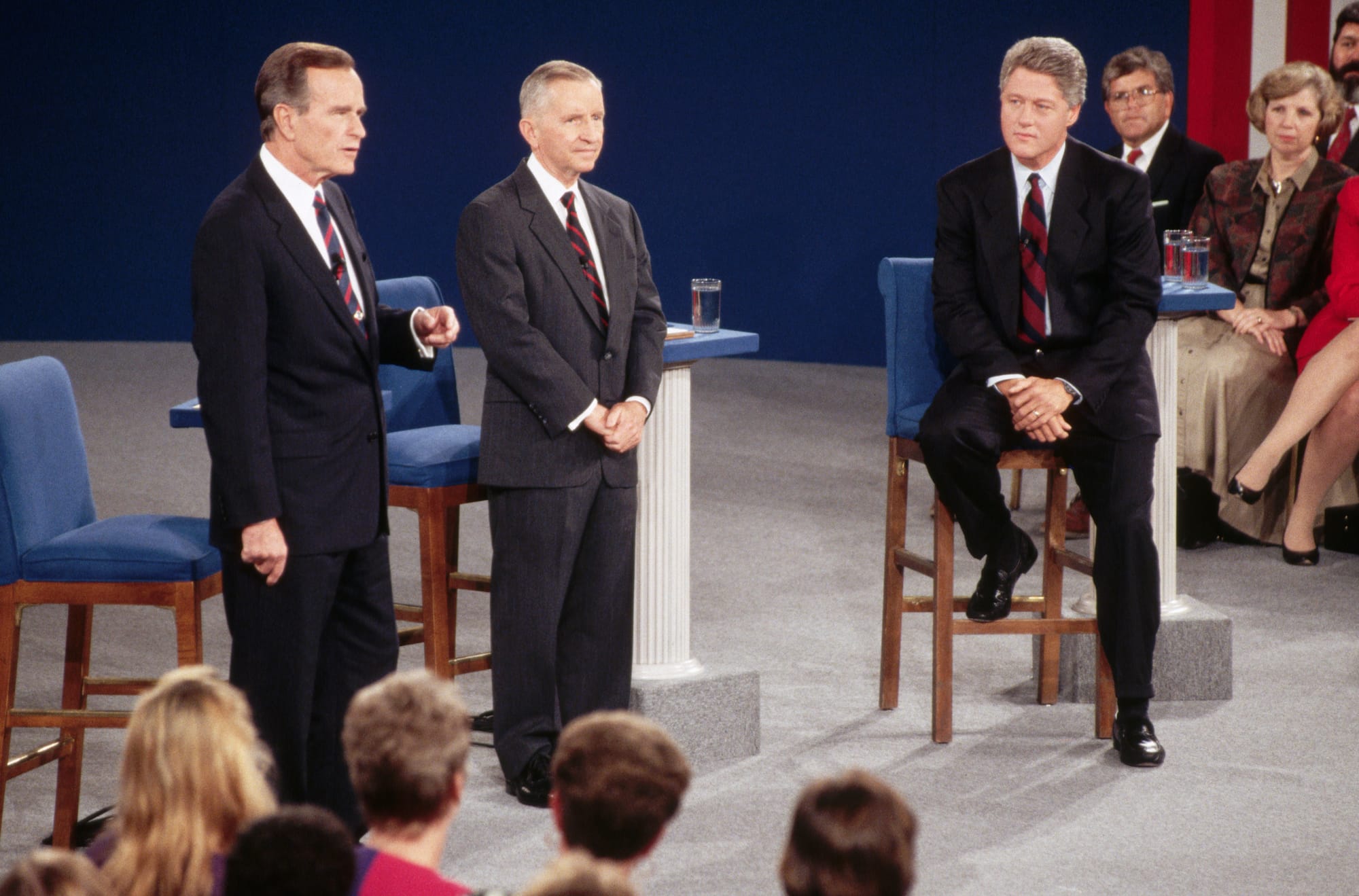
Using his folksy charm and pronounced accent, Perot argued against NAFTA, the North American Free Trade Agreement that the United States had with Mexico and Canada, claiming that it would lead to a massive loss of American jobs and manufacturing capacity.
We have got to stop sending jobs overseas. It's pretty simple: If you're paying $12, $13, $14 an hour for factory workers and you can move your factory south of the border, pay a dollar an hour for labor, have no health care—that's the most expensive single element in making a car—have no environmental controls, no pollution controls, and no retirement, and you don't care about anything but making money, there will be a giant sucking sound going south. So, if the people send me to Washington, the first thing I'll do is get a big wet blanket and put it over that, because we're not going to lose our jobs.
For the millions of us who watched that exchange live, Perot’s “giant sucking sound” became one of the most memorable lines in presidential debate history. More than thirty years later, his warning rings louder than ever, as President Trump’s new global tariffs aim to restore balance, attract investment, and revive U.S. manufacturing.
In 1992, there were approximately 17,618,000 American jobs in manufacturing. For March 2025, the preliminary estimate of American manufacturing jobs is approximately 12,950,000, based on the BLS Current Employment Statistics survey (seasonally adjusted)—meaning that there has been a drop of about 4.67 million jobs over the intervening 33 years. However, not all of the job losses are caused by outsourcing to countries with lower labor costs. Automation and technological advances have also contributed to the decline. Americans don't buy transistor radios, portable cassette players, camcorders, pagers, and beepers—so there's no need to make these products anymore.
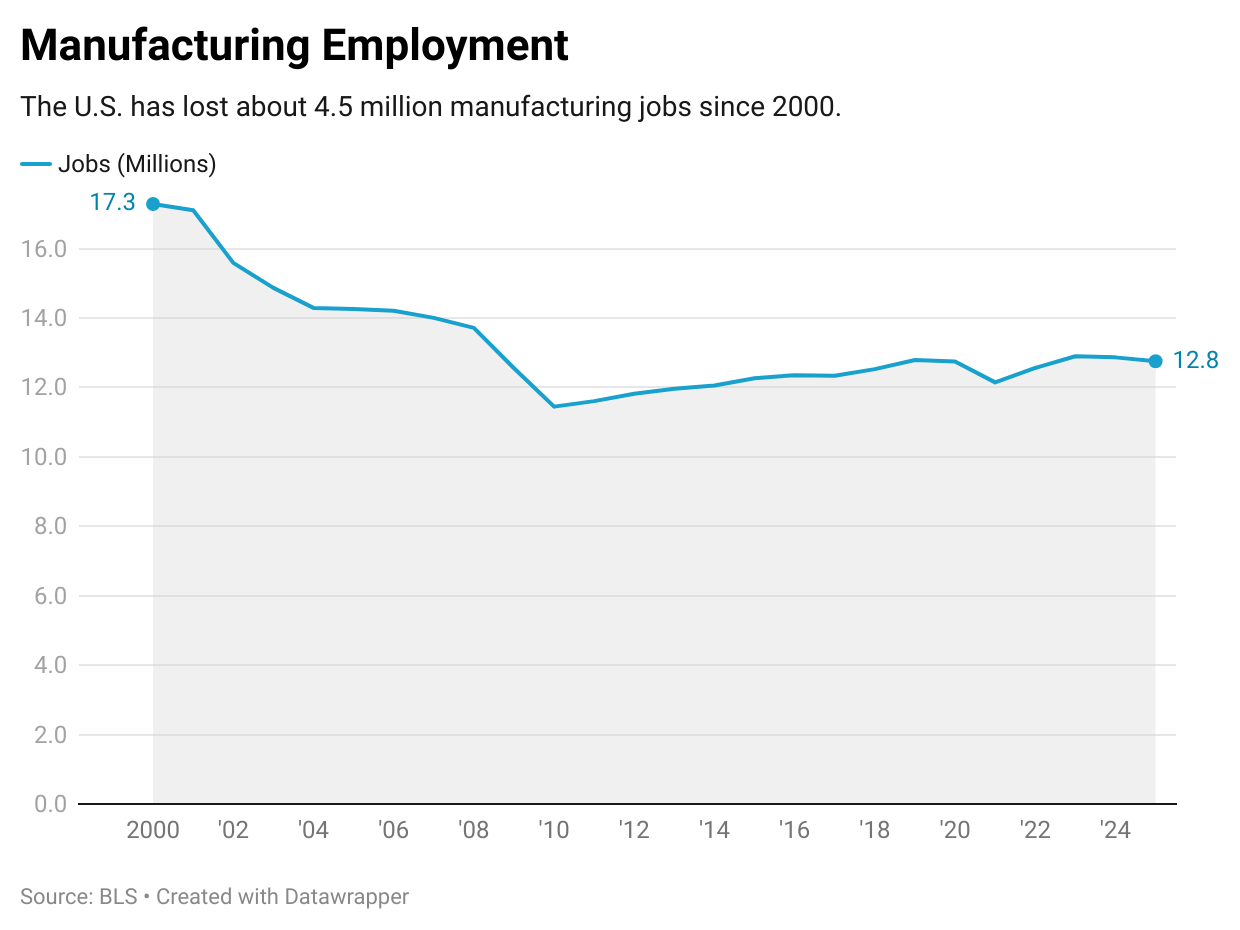
Although China did not merit a mention in the 1992 debate, political leaders nonetheless had China in mind. In an undated clip, then-President Clinton spoke glowingly about a World Trade Organization agreement that he claimed would benefit the United States by expanding trade with China.
The WTO agreement will move China in the right direction. To advance the goals Americans have worked for in China for the past three decades. And, of course, it will advance our own economic interests...all we do is agree to maintain the present access that China enjoys. These tariffs, ranging from telecommunications products to automobiles to agriculture, will fall by about half or more over just five years. This is the first time our companies will be able to sell products in China made by workers here in America without being forced to relocate manufacturing to China, sell through the Chinese government, or transfer valuable technology. For the first time. We'll be able to export products without exporting jobs.
Nearly every Clinton prediction made then has turned out to be untrue. China has leveraged WTO loopholes to dominate as a key player in the global trading debate, with its massive factories producing just about everything the world needs. However, China also uses its tariffs and policies to maintain that domination and stifle competition.
The country now leads numerous industries, including iron, steel, aluminum, textiles, cement, cell phones, personal computers, shoes, chemicals, toys, electronics, rail cars, and ships. China's "Made in China 2025" (MIC 2025) program, which is supposed to end next month, has extended this dominance to ten new industries, including next-generation IT, robotics, Artificial Intelligence, aerospace, new energy vehicles, new materials, biomedicine, and agricultural equipment. The world saw how DeepSeek's AI technology could threaten America's tech giants at a fraction of the cost.
China is the world's best at extending low-interest loans that are unavailable to companies in other countries. China absorbs domestic manufacturing output, forcing companies dependent upon state enterprises to consume products, thereby increasing economies of scale and lowering costs. It requires foreign countries that receive Chinese aid to source products from China, thereby helping open new markets for Chinese companies.
China also subsidizes companies that dump products in world markets at prices below cost so that it can weaken—and eventually wipe out—international competition. It has manipulated the value of the yuan, its currency, to keep it artificially low so that exports are cheaper (when priced in U.S. dollars). And it is ruthless in requiring foreign companies to share intellectual property with Chinese companies as a price to enter China's huge market.
President Trump is now trying to correct decades of trade blunders—many born in Washington. Ross Perot would be the first to say: it’s about time.
TIPP Picks
Selected articles from tippinsights.com and more
Trump 2.0
1. The Poverty Of The Criticism Of Trump’s Agenda—Victor Davis Hanson, American Greatness
2. Trump And Our Return To The ‘American System’—Tim Overton, The Daily Signal
3. Trump Threatens Further 50% Tariff On China If It Doesn't Backtrack—TIPP Staff, TIPP Insights
4. Trump Shares Collateral Murder-Style Snuff Film On 15th Anniversary Of Collateral Murder—Caitlin Johnstone, Ron Paul Institute for Peace and Prosperity
5. JD Vance Says Admin Will Not ‘Ask Permission From Far-Left Democrats’ To Deport Criminals—Nicole Silverio, DCNF
6. Guess How Many Democratic Party State AGs Are Now Fighting Trump’s Executive Order To Stop Voter Fraud—Hailey Gomez, DCNF
7. ‘Should Have Recused Himself’: Legal Experts Sound Alarm On Obama-Appointed Judge Blocking Trump’s Deportations—Jason Hopkins, DCNF
8. Arizona Rancher Praises Trump As Illegal Border Crossers On His Land Plunge From 50 Or More To 3 Daily—Virginia Allen, The Daily Signal
World Affairs
9. How Lies From The Biden Administration Expanded The Ukraine War—William L. Anderson, Mises Wire
10. General Cavoli’s Schizophrenia On Ukraine—Larry C. Johnson, Ron Paul Institute for Peace and Prosperity
11. America’s New Lost Cause—Michael Vlahos, Ron Paul Institute for Peace and Prosperity
12. Trump Vs. Iran: The Art Of Deterrence—Editorial Board, TIPP Insights
13. Trump Announces Direct U.S.-Iran Talks On Nuclear Program—TIPP Staff, TIPP Insights
14. War With Iran Is A Path To Destruction—George D. O’Neill, Jr., Ron Paul Institute for Peace and Prosperity
15. Bessent Praises Japan As A Key Ally, Contrasts With China—TIPP Staff, TIPP Insights
16. Netanyahu Visits White House To Talk About Tariffs, Gaza and More—TIPP Staff, TIPP Insights
17. Japan PM Ishiba Plans To Send Top Team To The U.S. For Negotiation—TIPP Staff, TIPP Insights
18. Canada Initiates WTO Dispute With The U.S.—TIPP Staff, TIPP Insights
19. EU Offered 'Zero-for-Zero' Tariff Deal Weeks Before Liberation Day—TIPP Staff, TIPP Insights
20. Beware: The ECB Digital Currency Is Coming—Daniel Lacalle, Mises Wire
21. ‘Live Not By Lies’ Highlights Forgotten Anti-Communist Heroes—Katrina Trinko, The Daily Signal
Economy
22. Stocks Will Soar When It Is Clear That Trump’s Strategy Will Succeed—Bill Ackman, X
23. The Dismal Science And The Trumpian Tariff Hullabaloo—Josh Hammer, The Daily Signal
24. Hydroxychloroquine, Ivermectin, And Tariffs—Editorial Board, TIPP Insights
25. ‘The Real Villain’: Steve Moore Identifies Who Made The Market Tank Friday And Why—Mariane Angela, DCNF
26. Consumer Confidence Softens In April, RealClearMarkets/TIPP Survey Finds—Editorial Board, TIPP Insights
27. Tariffs Could Be Permanent And Could Also Be Negotiated, Trump Says—TIPP Staff, TIPP Insights
28. ‘Time To Make The Patient Better’: JD Vance Says ‘Big Transition’ Coming To American Economic Policy—Hailey Gomez, DCNF
29. ‘I’m Giving You Clarity’: Kevin Hassett, George Stephanopoulos Duke It Out Over Trump’s Statement About Stock Market—Hailey Gomez, DCNF
30. ‘I’m Not On The Left’: Jake Tapper Clashes With Brooke Rollins Over Trump’s Tariffs—Hailey Gomez, DCNF
31. Elon Musk And Peter Navarro Clash Over Tariffs—TIPP Staff, TIPP Insights
32. Richard Branson Criticizes U.S. Tariffs, Calls For Swift Policy Reversal—TIPP Staff, TIPP Insights
Politics
33. The Worst Thing To Happen To Democrats Is Democracy—Sasha Stone, Substack
34. Democrats Refuse Barack Obama’s Election Meddling — As Former Prez’s Influence Within The Desperate Party Withers—Miranda Devine, New York Post
35. ‘Could Not Run Away’: Adam Schiff Says Harris Lost Race Due To Being ‘Status Quo’ Candidate—Hailey Gomez, DCNF
36. ‘He Was Gone’: Gingrich Says Special Committees Must Probe Biden’s Mental Fitness And Ask Four Serious Questions—Mariane Angela, DCNF
37. Chuck Schumer Threatens To Use Tactic Democrats Once Called ‘Jim Crow Relic’ To Block Bill Securing American Elections—Adam Pack, DCNF
38. Members Of Congress Must Be Present To Represent—Tim Young, The Daily Signal
39. GOP-Led Congress Deals Fatal Blow To Biden’s War On Refrigerators—Hailey Gomez, DCNF
40. Texas Gov. Greg Abbott Blocks Construction Of Proposed Muslim ‘City’—Ilan Hulkower, DCNF
41. Senate Republicans Move To Nuke California EV Mandate Despite Procedural Hurdle—Nick Pope and Adam Pack, DCNF
General Affairs
42. Media, Please Grow Up, Part II—Editorial Board, Issues & Insights
43. Lawn Gone Liberty: Exposing Abuse Of Government Fines—John Stossel, The Daily Signal
44. The End Of An Era In Homer City—Salena Zito, The Daily Signal
45. Caterwauling Over a Kennedy Center Coup—Tim Graham, The Daily Signal
46. Shut Down The Department Of Education ASAP—Star Parker, The Daily Signal
47. Our Peanut Allergy Epidemic Sprang From Experts’ Exactly-Wrong Guidance—Brian McGlinchey, Ron Paul Institute for Peace and Prosperity
48. UK Women’s Pool Championship Match Has Two Transgenders Squaring Off Against Each Other In True Clownshow—Andrew Powell, DCNF
49. Washington Post, AP Articles Expose Pro-Transgender Athlete Bias of Legacy Media—Peter Parisi, The Daily Signal
50. Harvard And DEI: An Expensive Lesson—Jonathan Butcher, The Daily Signal
51. Purging DEI From The Smithsonian Is No Easy Task—Mike Gonzalez, The Daily Signal

